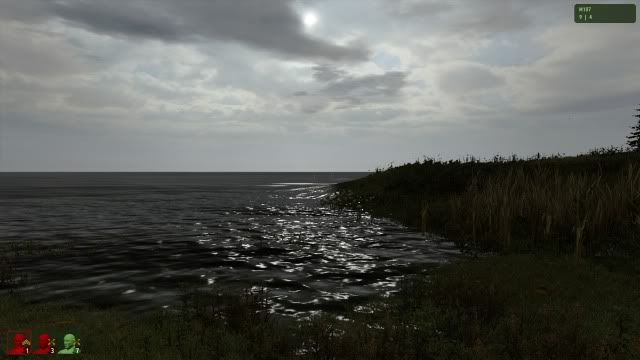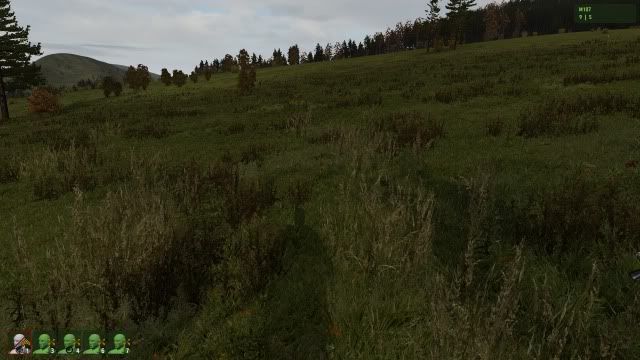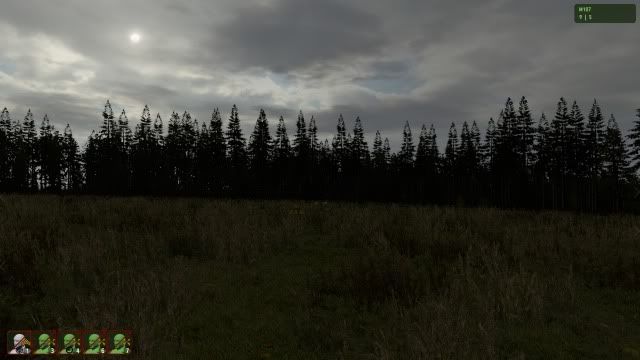A couple of weeks ago I wrote an article for NoobFeed entitled "STALKER 2: Expectations, Wishes, Fears and Hopes", which is essentially a preview of the game. Seeing as I'm particularly proud of this article, I decided to place it here as well. It's mainly for archiving purposes, but of course you are free to let me know what you think. You can find the original article here.
_____________________________________________
Fans of the first person shooter genre with a good gaming PC will undoubtedly have come across one of the S.T.A.L.K.E.R. games at one point. Granted, these games are an acquired taste, and most people will either love or hate them, but the original S.T.A.L.K.E.R. trilogy, which consists of Shadow of Chernobyl (2007), Clear Sky (2008) and Call of Pripyat (2010), is a symbol of there still being hardcore PC-exclusive games that simply cannot be done on the current-gen consoles.
As such, when GSC Game World, the Kiev-based developer behind the series, announced that S.T.A.L.K.E.R. 2 would also be ported to the Xbox 360 and Playstation 3, everyone was a tad surprised to say the least. Fears that the new installment in the cult franchise will cater to the console crowd are widespread, especially since Crysis 2, another sequel to a PC-exclusive sandbox shooter, seemed to have been affected quite a bit by the multiplatform development process. With the release of S.T.A.L.K.E.R. 2 still being a year away, it is tough to say anything about the game without entering the territory of wild speculation. However, by looking back at what made the previous games in the series great and what's possible on the consoles, we can at least unearth some of the opportunities and pitfalls of the development process of GSC's new big thing.

Many things can be said about S.T.A.L.K.E.R., but not that it's the easiest video game series to get into. Shadow of Chernobyl, Clear Sky and Call of Pripyat all rely on making the player feel like he's part of the environment and setting, and part of realising such a level of immersion is giving him the same abilities as the NPCs encountered in the game. From the moment the game drops you in its alternate reality version of the Zone of Exclusion surrounding the exploded Chernobyl reactor, it's clear that S.T.A.L.K.E.R. is no super soldier experience. Especially in Shadow of Chernobyl, the first weapons you'll encounter are practically useless, and the first few hours of the game basically consist of familiarising yourself with the environment whilst struggling to find enough ammo, health packs, food and medicines to at least stay alive.
This risky design choice means that players have to be willing to invest a lot of patience and determination into the game if they are to get through the first few hours of gameplay. As a result, quite a few people dismissed the title as being unfair and broken simply because they lacked the resilience to endure the mental beatings the game administered in the opening phases. On the contrary, those who did play long enough to get to the more forgiving middle section of the game, often felt a great sense of satisfaction upon realising that they finally understood life in the Zone - and had become one with it.
It is questionable whether GSC Game World will have the guts to introduce players to S.T.A.L.K.E.R. 2 in a similar fashion. Typical console shooters tend to be a lot more fast-paced, straightforward and forgiving, and a steep learning curve might just scare off too big a portion of the console audience. The market potential of a single player-centered FPS like S.T.A.L.K.E.R. already is fairly limited on consoles as it is, and GSC Game World might shoot itself in the foot if it were to deliver a game with the same magnitude of intricacy as the original trilogy. On the other hand, the fact that this series is so different from what you normally see on the fairly oversaturated console shooter market makes it stand out, and it isn't unlikely that the game will only expand its cult following with a console version.
If the franchise is to be as successful on the Xbox 360 and Playstation 3 as it already is on the PC, however, S.T.A.L.K.E.R. 2 will have to replicate the appeal of the original, PC-exclusive trilogy on the consoles. And that's exactly where the biggest problem lies. The games' structure fully utilises the power of the PC, with the large, open areas, unparalleled lighting effects, detailed textures and complex, universal A.I. being particularly heavy on the system memory.

Especially the A.I. system will be very hard, if not impossible to do on consoles. S.T.A.L.K.E.R.'s 'ALife' system allows the game to support up to 1000 A.I., each of them showing non-scripted behaviour. This means that, if you're in a certain area in the Zone, every NPC and mutant within that area will follow non-scripted life cycles that consist of hunting, eating, sleeping and fighting. This process acts independently from the player, so when you're on one side of the map exploring a dungeon, a group of NPCs may be fighting off mutants on the other end. This makes the game world feel alive, as it's an unpredictable entity that isn't centered around the position and behaviour of the player.
So when, in a questionnaire, a GSC Game World representative stated that the key difference between the PC and console versions would be the graphics, alarm bells started ringing on the end of concerned S.T.A.L.K.E.R. fans, as, in previous installments, it had mainly been gameplay features that made use of the PC's advantages. Had the Ukrainian developer found a way of implementing the resource-heavy A.I. system into console technology, or had the concept been abandoned altogether? It's hard to say at this point, but it would undoubtedly be a disaster if the new engine that is being developed for S.T.A.L.K.E.R. were to use a cell system that divides the map into various small areas that are only activate when the player enters them. A similar system was used in Ubisoft's 2008 sandbox shooter Far Cry 2, resulting in respawning enemies and other memory issues marring the immersion considerably.

If there's something positive to come out of the multiplatform focus of the upcoming S.T.A.L.K.E.R. game, it's that it will probably benefit the stability. Shadow of Chernobyl and Clear Sky in particular suffered from many notorious, potentially game-breaking bugs and glitches, and it took GSC several patches to tilt the stability and performance to a level where it was at least acceptable. Call of Pripyat was a huge improvement in this respect, as it didn't have quite as many bugs, but GSC will have to make sure that the new engine they're creating won't make a debut that's as rough as that of the X-Ray engine on which the previous cycle of S.T.A.L.K.E.R. games was built. Because even though console games are now often being patched as well, the console crowd is usually far less patient with waiting for patches to make a game work (and rightfully so). As such, selling a game in the same buggy, unfinished state as Clear Sky could quickly prove to be fatal. GSC will probably realise that it will have to get things right at the first go, and if they succeed, PC gamers will definitely benefit from this, as well.
There are still many things the developers will have to look into if they are to make this game work on all platforms. If GSC Game World has proven us anything with the original S.T.A.L.K.E.R. trilogy, though, it's that it's an extraordinarily talented and ambitious development studio that isn't afraid of high expectations. Because who expected Shadow of Chernobyl, which had been in development since 2001, to be such a huge success? That game's long development cycle generated a lot of scepticism among gamers and critics alike, with Shadow of Chernobyl even winning Wired's Vaporware Award in 2006. Yet a year after it was mockingly labelled the new Duke Nukem Forever, it put GSC Game World on the map as one of the most attractive, ambitious and exciting PC developers around.

There's no denying, however, that the company is on thin ice right now. S.T.A.L.K.E.R. has gathered an incredibly loyal and dedicated cult following among hardcore PC gamers. But if the recent release of Crysis 2 has taught us anything, it's that reputations of developers can be ruined with only one game if the fans feel betrayed. In a similar fashion, one faux pas on GSC's behalf could put the steady rise in popularity of the S.T.A.L.K.E.R. franchise, which recently even got its own line of merchandise, to an abrupt end. Fortunately for us, though, the Kiev-based studio likes a challenge.




















Log in to comment